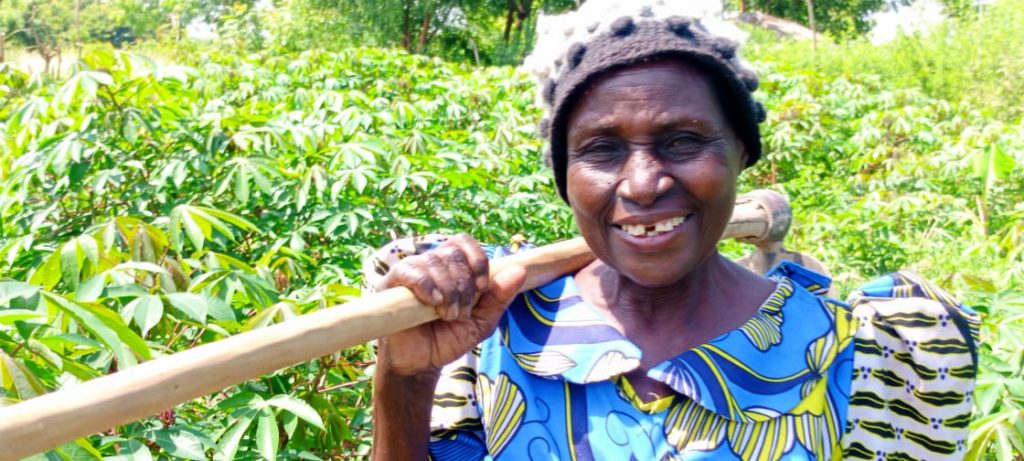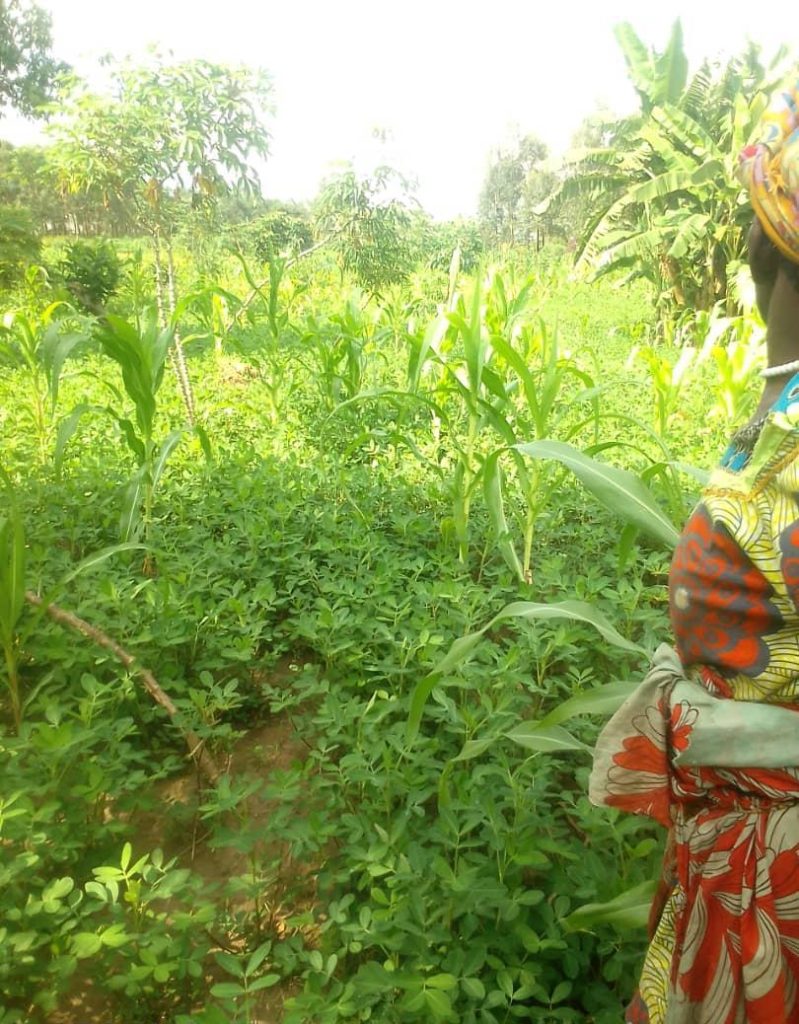AFRICE’S SOFT LOANS TRANSFORMING UGANDA’S SMALLHOLDER FARMING
Agriculture remains the backbone of Uganda’s economy, employing over 70% of the population. Yet, despite being the primary food producers, smallholder farmers face persistent challenges including lack of access to affordable credit, soil degradation, and unpredictable weather patterns. According to Uganda’s 2024 census, 46% households are food insecure, underscoring how fragile the country’s food system remains.
To address this, the African Institute for Culture and Ecology (AFRICE), with support from the Mortenson Family Foundation (MFF), is implementing an Agriculture Impact Investment Initiative that combines loans with agroecology and indigenous seed promotion. The program aims to not just finance farming but to transform the way smallholder farmers grow, sustain and market their crops.
At the center of AFRICE’s approach is a revolving soft loan fund, offered at 2% monthly interest rate. Unlike commercial loans that burden smallholder farmers with high interest rates and collateral demands, AFRICE’s loans are designed for accessibility and sustainability. The loans range from Ug. Sh300,000 to 15 million shillings, depending on whether the applicant is an individual farmer or a group. Preference is given to active smallholder farmers who demonstrate commitment to agroecology practices. This ensures that loans fuel not just production but also resilient and sustainable farming systems.
“In this model, farmers are innovators, custodians of indigenous seeds and partners in promoting food sovereignty,” says Dennis Tabaro Natukunda, the Executive Director of AFRICE.

Farmers on the frontline
In Nyakabungo A village, Rukungiri district, 87 year –old Stanely Kibesigire proudly shows off his revived banana plantation. For months, weeds had threatened to choke it, but with a 500,000 shillings soft loan, he hired laborers and bought animal manure to restore his garden. “I used the money to hire laborers to weed my plantation. I also purchased a lorry-full of cow dung for adding manure. Now I look forward to a good harvest. If I get another loan, I can purchase more goats which in turn can provide me with more manure. ,” he says.
Kibesigire belongs to Iganiriro Rya Kububumbu Farmer’s group, where 17 of 22 members have accessed soft loans. The group chairperson, Ricky Owiihoreye notes that women in particular are benefiting. “These loans have supported women in sustainable farming, especially,, the beneficiaries are engaged in growing indigenous crops like cassava, beans, millet and Bambara nuts; which promote food sovereignty,” said Owiihoreye.
In Rwampara district, the Bakashooba Agribusiness Enterprises Ltd secured a 15million shilling loan from the Project. The loan has helped them to plant 6 acres of coffee, intercropped with bananas and fruit trees. It has also helped them to dig a water dam on the farm to help irrigate the coffee to buffer against drought. “The dam is helping us to irrigate during the dry spells. We are no longer at the mercy of weather, we only need more funds now to have a solar-run irrigation scheme” said Naboth Asasira, the family company Manager.
In Buliisa, Violet Bitamale, another soft loan beneficiary, has used the loan to embrace agroecology in established homestead garden. Once burdened by long treks to distant farms, she now intercrops, applies organic manure and makes her own organic pesticides.
“My family eats better and I save money. This is changing our lives,” she explains, highlighting how the initiative reduces the burden on women while improving household nutrition’
AFRICE’s initiative goes beyond soft loans. Farmers are trained in agroecology practices such as intercropping and crop rotation to maintain soil fertility, application of organic manure and bio fertilizers instead of synthetic fertilizers, producing and using natural pesticides that protect crops without harming ecosystems, growing and multiplication of indigenous seeds such as millet, beans, cassava and Bambara nuts. They also practice beekeeping which boosts pollination and supplements household income.
For farmers like Annah Mugabirwe of Kajumbi village in Rukungiri, this shift has been transformative. With her 500,000 shilling loan, she bought ingredients to make natural pesticides and biofertilizers.
“These inputs protect my beans and maize and keep the soil health,” Anna says, mixing a bucket of her homemade solution. “I also sell to neighbors. The loan helped me farm better and start a side business.”
Her story underscores AFRICE’s belief that sustainable farming is not just about yields; it is about income diversification, ecological balance and community resilience.
Seeds of sovereignty
AFRICE’s seed learning centers in Buliisa and Rukungiri anchor the program’s sustainability. Here farmers practice a seed loaning system where they borrow indigenous seeds, plant and multiply them and then return part of the harvest for others to access.
“At our seed learning center, we collect and grow indigenous seeds especially those that are facing extinction and distribute them to members for multiplication. When members harvest, they bring back to the center. This is helping us to recover indigenous seed varieties that were disappearing and multiplying them,” said Owihoreye who is also a manager for a seed learning centre in Rukungiri district.

This revolving seed system reduces dependence on expensive hybrid seeds, preserves biodiversity and empowers communities to control their food systems.
“Seed is life. By reviving indigenous seed systems, we ensure farmers are not just producers but custodians of their heritage,” says Juliet Zalwango; the AFRICE field officer in Buliisa.
The need for more support
So far, the initiative has reached close to 40 smallholder farmers. But the demand is overwhelming. “Everywhere we go, farmers ask when their turn will come. Others need to top-up the loans. The impact is visible, we just need more resources,” Owihoreye says.
Scaling up requires additional funding, better infrastructure, stronger market linkages and expanded seed centers. Without such support, many willing and capable farmers will remain trapped in cycles of hunger and poverty.
From Kibesigire’s banana plantation in Rukungiri to Bakashooba’s irrigated coffee fields in Rwampara to Bitamale’s thriving homestead garden in Buliisa, AFRICE’s soft loan initiative is reshaping Uganda’s agricultural land scape. It is a paradigm shift that is placing power back in the hands of smallholder farmers, validating indigenous knowledge and seeds and promoting sustainability.
Tabaro reflects that, “with soft loans, farmers are growing strong roots, not only for their crops but for their futures” If scaled, such models could move millions out of poverty and hunger, which is also an alternative from the exploitative and not affordable Commercial Bank loans.
ENDS//